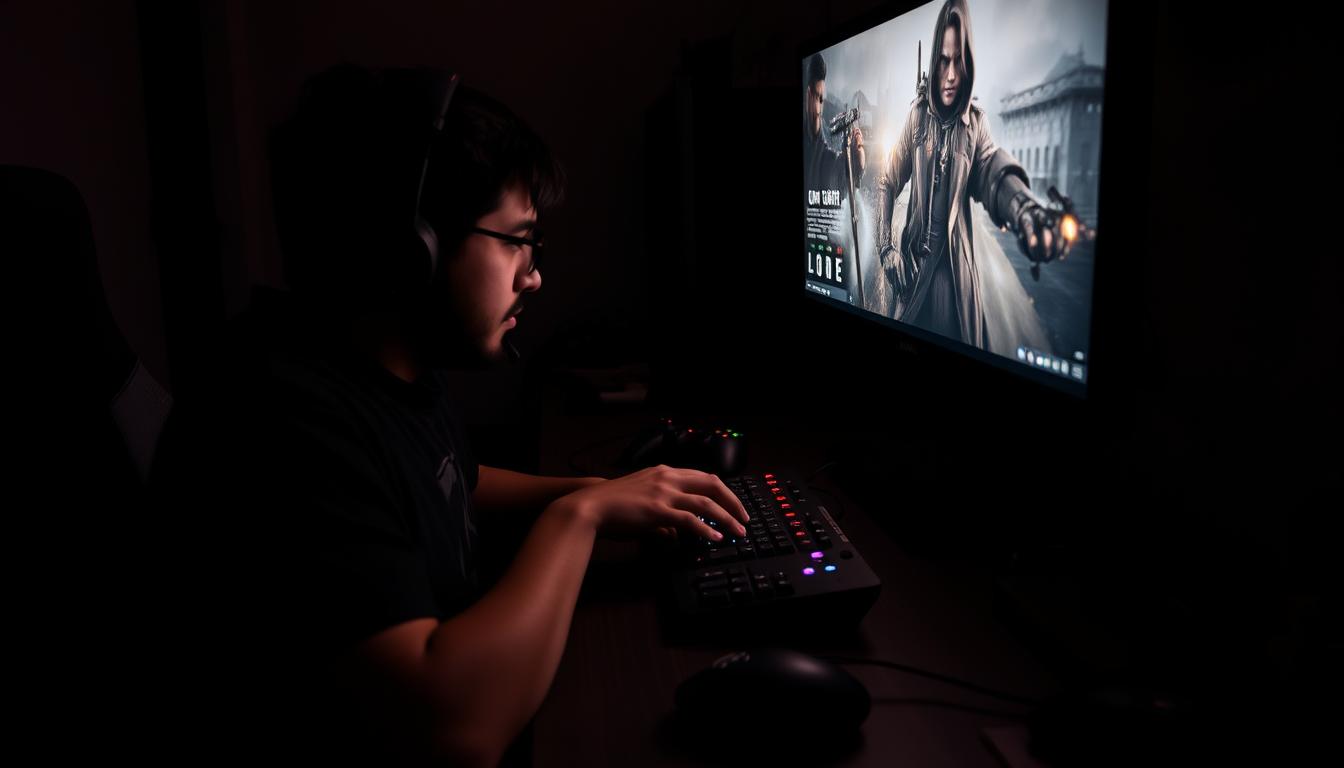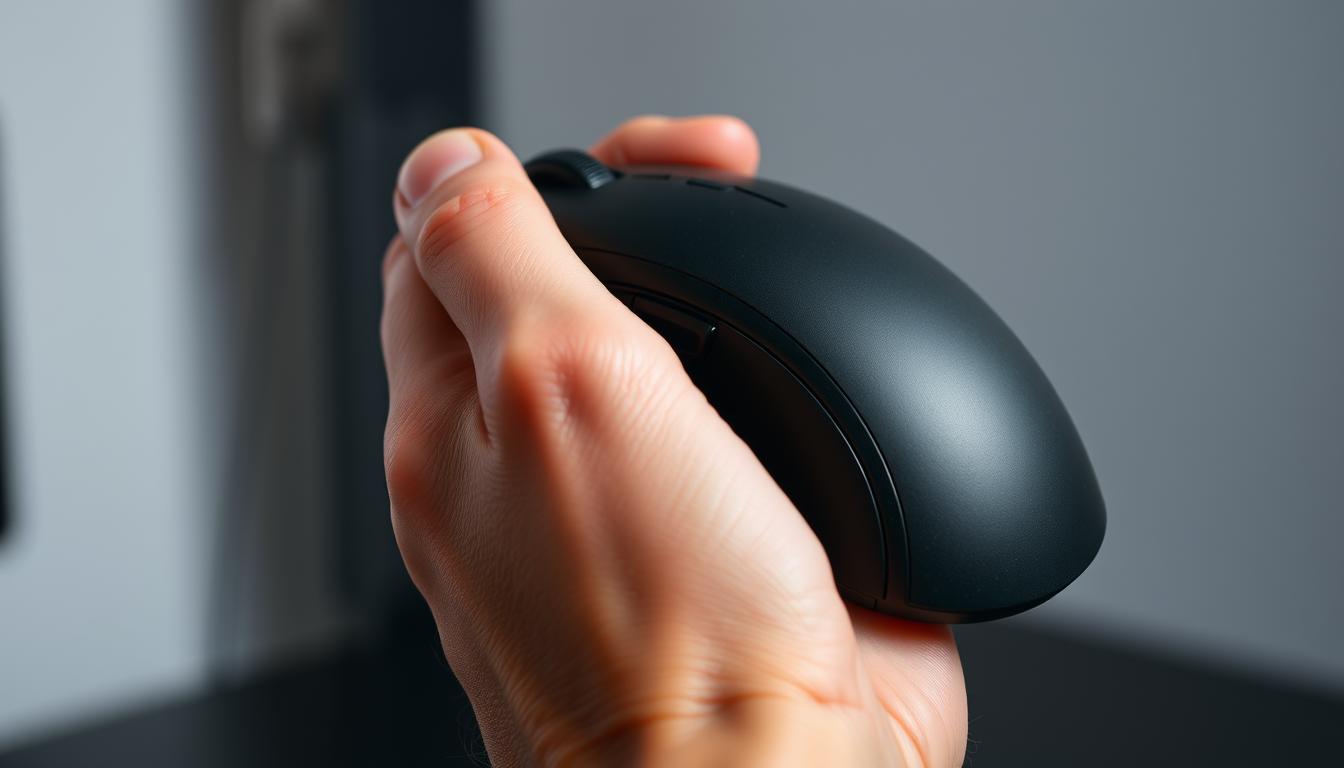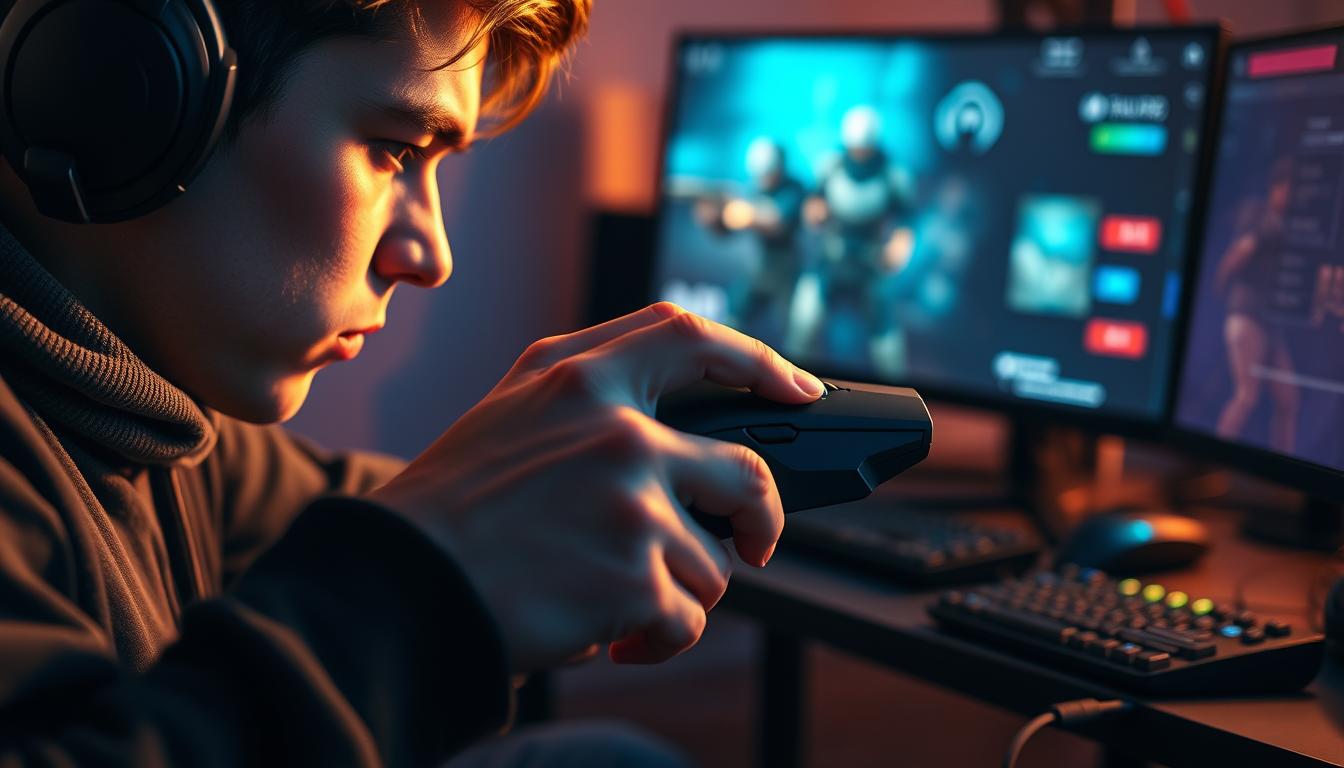Anúncios
Ever wondered why left-handed shooters might find aiming tricky? They have the same physical skills as right-handed folks. This article explores how mental training can help left-handed shooters aim better. We’ll look at how left-handed brains work and find ways to improve their aim.
Let’s tackle the challenges left-handed shooters face. We’ll learn how to use our minds to get better at aiming. From grasping left-handedness to practicing mental exercises, this journey will help you aim higher.
Anúncios
The Importance of Left-Handed Aim
Left-handed aim is key in shooting sports. Left-handed shooters face special challenges, like in left-handed archery. They need to improve their aim to do well.
Many left-handed people struggle because there’s not enough equipment for them. Shooting sports often focus on right-handed people. This makes it hard for left-handed athletes to reach their best.
But, when left-handed shooters get better at aiming, it changes things. They feel more confident and enjoy the sport more. Better aim means they do well, which strengthens their bond with the sport and its community.
Anúncios
Understanding Left-Handedness and Brain Function
Left-handedness is more than just a hand preference. It often links to unique brain functions, especially in the right hemisphere. This hemisphere’s role in processing information affects spatial awareness, key for aiming well. Knowing these differences helps left-handed people improve their shooting skills.
The Right Hemisphere’s Role in Spatial Awareness
The right hemisphere is key in spatial awareness. It helps with understanding distances, spotting patterns, and judging paths. For left-handed folks, this hemisphere’s dominance in spatial skills boosts their distance judgment when aiming. Getting to know these skills can improve focus and technique in shooting.
Hemispheric Lateralization and Its Impact on Aiming
Hemispheric lateralization means brain functions are split between hemispheres. This affects aiming techniques. Left-handed people have a special form of this, which shapes their aiming strategies. Customizing practice to match these brain functions can lead to better results and more consistent shooting.
Common Challenges Faced by Left-Handed Shooters
Left-handed shooters often face unique challenges that can impact their performance. One big issue is the need to use equipment made for right-handed people. This can make shooting less comfortable and less effective.
Coordination Difficulties
Left-handed shooters often struggle with coordination when using standard gear. This is because they have to adapt to right-handed equipment, leading to awkward movements. This makes it hard to shoot smoothly, affecting their aim and accuracy.
Improving shooting skills requires overcoming these coordination challenges. Proper training and practice are key.
Finding Suitable Equipment
Finding the right equipment is another big problem for left-handed shooters. There’s often a lack of left-handed gear, like firearms and archery accessories. This scarcity can lead to frustration and might stop some from enjoying shooting sports.
To tackle these issues, left-handed shooters can try adaptive strategies. They might look for specialized stores or online forums for advice. This way, they can find better solutions to improve their shooting experience.
Mental Training for Better Left-Handed Aim
Mental training is key for left-handed shooters to improve their aim. It helps them get better at shooting by using their mind. One way is through visualization, where they imagine themselves shooting perfectly.
By doing this, they build muscle memory and gain confidence. It makes shooting feel more natural and accurate.
Concentration exercises are also important for better aim. They help shooters stay focused. Simple tasks like remembering the alphabet or focusing on breathing can help.
Doing these exercises regularly makes shooters more disciplined. This leads to better concentration and shooting skills.
Having a positive mindset is also crucial. Techniques like positive self-talk and mindfulness help. Saying positive things to yourself boosts confidence and focus.
Mindfulness helps block distractions, keeping shooters focused. Setting mental goals helps track progress and improve aim.
Exercises to Strengthen the Non-Dominant Hand
Working on your non-dominant hand through specific exercises boosts hand strength and dexterity. Doing simple tasks every day can improve your ambidexterity. This also helps your shooting skills.
Daily Tasks to Improve Dexterity
Adding exercises for your non-dominant hand to your daily routine can improve coordination and control. Try doing everyday activities like:
- Brushing your teeth
- Using a computer mouse
- Mixing ingredients while cooking
- Writing simple notes
These activities with your non-dominant hand help improve dexterity. They also make your skills more balanced.
Weight Training for Hand Strength
Weight training is key for building hand strength. Using light weights or grip tools can increase muscle power. Here are some effective exercises for hand strength:
| Exercise | Description | Repetitions |
|---|---|---|
| Grip Strengthener | Use a grip trainer; squeeze and hold. | 3 sets of 10-15 reps |
| Wrist Curls | Perform curls with light weights to target wrist flexors. | 3 sets of 10-12 reps |
| Finger Extensions | Use rubber bands around fingers while spreading them apart. | 3 sets of 10-15 reps |
Adding these exercises to your routine will boost muscle strength in your non-dominant hand. This leads to better shooting accuracy.
Enhancing Visual-Motor Coordination
Improving visual-motor coordination is key for left-handed shooters to get better at aiming. Doing specific practice techniques can boost skills and build confidence. Activities that focus on this coordination can greatly improve performance.
Practice with Mirrors to Build Confidence
Using mirrors during practice lets people see their movements and fix their form. This helps shooters see how their body is positioned, leading to better coordination. Seeing themselves helps build confidence, making them aim better in real shooting situations.
Engaging in Juggling and Ball Tossing
Juggling and ball tossing are great for improving visual-motor coordination. These activities make the brain react fast and accurately, which is important for shooting. Juggling helps develop hand-eye coordination and quick responses. Ball tossing, meanwhile, improves catching and throwing skills, essential for aiming well.

The Role of Visualization in Shooting Accuracy
Visualization is key for left-handed shooters to improve their aim. It helps them see themselves hitting their targets. This boosts their confidence and performance.
Creating Mental Imagery for Successful Aiming
Creating mental images of a perfect shot is important. Left-handed shooters should picture their target, posture, grip, and movement. Doing this regularly improves muscle memory and connects thoughts with actions.
Pre-Performance Routines and Mental Rehearsal
Good pre-performance routines are essential for accuracy. They prepare shooters mentally and physically. Mental rehearsal during these routines helps solidify their approach, ensuring focus and purpose when aiming and shooting.
Utilizing Relaxation Techniques to Improve Focus
For left-handed shooters, staying calm and focused is key to better performance. Using relaxation techniques can help improve focus and concentration. Breathing exercises and meditation are great for reducing anxiety and helping aim better.
Breathing Exercises to Manage Anxiety
Breathing exercises are great for managing anxiety before shooting. They involve deep breaths to calm the body and mind. This can help left-handed shooters feel less tense and more focused.
Meditative Practices for Enhanced Concentration
Meditation helps shooters clear their minds and stay in the moment. Regular meditation boosts concentration and helps visualize success. It’s especially helpful for left-handed shooters who face a lot of pressure.
The Benefits of Mindfulness for Left-Handed Aiming
Mindfulness is key for better shooting, especially for left-handers. It helps stay focused on each shot, reducing distractions. Being mindful brings calm and allows for quick, instinctive actions needed in shooting.
Staying Present During the Shooting Process
Being present is crucial for great shooting. Mindfulness helps shooters focus on their movements and surroundings. This awareness reduces anxiety and improves aim and execution.
Finding Flow in Performance
Reaching a flow state is when you perform at your best. Mindfulness helps left-handers link their thoughts and actions smoothly. This connection leads to better shooting by making decisions instinctively.
Engaging the Right Brain for Enhanced Creativity
Boosting creativity is key, especially in precise fields like shooting. Activities that spark the right brain can unlock new problem-solving ways. Left-handed writing is a great way to engage the right brain.
Left-Handed Writing as a Creative Exercise
Left-handed writing boosts creativity and brain skills. Studies show it activates the right brain, linked to creativity. Left-handers often have better divergent thinking due to a larger brain connection.
Left-handed writing offers many benefits:
- Improved penmanship and writing speed
- Enhanced creativity and cognitive flexibility
- Better problem-solving skills for tasks like aiming and shooting
Great minds like Leonardo da Vinci trained both hands for creativity. This practice can change how you think about aiming. Regular left-handed writing boosts brain areas for motor control and creativity.
Shooters who practice left-handed writing might find new, accurate techniques. It’s a creative gateway that improves skills far beyond writing.
Tracking Progress and Maintaining Motivation
Tracking progress and staying motivated are key for left-handed shooters to get better. Setting clear goals helps create a space for growth. By focusing on the journey, not just the end result, shooters stay excited and committed.
Setting Achievable Goals for Improvement
Setting goals is essential for improving in shooting. Having realistic, measurable goals lets shooters see their progress and celebrate small wins. This keeps them motivated. Having both short-term and long-term goals helps shooters stay on track as they improve.
Logging Daily Practices and Outcomes
Keeping a log of daily practices is a great way to track progress and find areas to work on. It helps shooters understand what works and what doesn’t. This detailed tracking helps in making better training sessions and keeps motivation high.
Conclusion
Mental training is key for left-handed aiming. We’ve looked at ways to improve shooting, like using your mind. Techniques like visualization, breathing, and meditation are crucial.
These methods are not just extra help. They are essential for better performance. They help shooters get more accurate over time.
For left-handed shooters, mental training is a game-changer. Using neurofeedback and focus drills can make a big difference. These practices help improve attention and coordination.
By adding these techniques to your daily routine, you can see better results. This is especially true for hand-eye coordination and visualization. These skills are vital for success in shooting.
The path to better shooting is ongoing. It’s a journey that helps athletes reach their full potential. With the right mental training, shooters can achieve great things.





